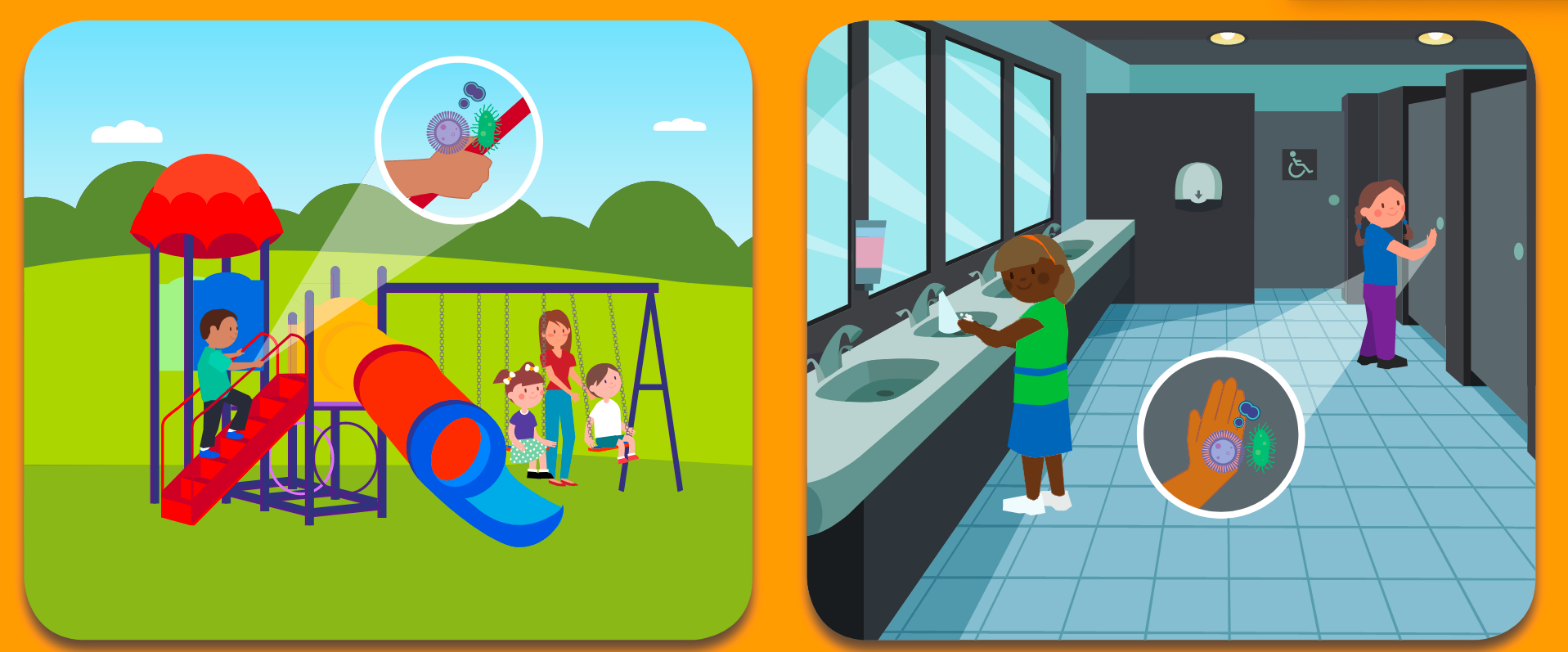Nurse
School Nurse DeRose Yuhuru-Ohana Welcomes You!
As the School Nurse for Agua Caliente Elementary School, I am focused on helping to provide students a safer return to schools and healthy learning.
The guidelines on this web page are resources created by the CDC, The Arizona Health Department, The National School Nurses Association, The National Institute of Health, and Policies from the Tucson, Arizona School District. These guidelines may change from week to week, and some of these guidelines may not apply to every student. Work with your family doctor to make individual health decisions.
If you have an emergency, please call 911 immediately.
The Importance of Handwashing During COVID-19
Parents and caretakers play an important role in teaching children to wash their hands. Teach kids the five easy steps for handwashing—wet, lather, scrub, rinse and dry—and the key times to wash hands, such as after using the bathroom or before eating. You can find ways to make it fun, like making up your own handwashing song or turning it into a game.

Always Wear A Mask When Outside of the Home
Children should wear a mask in public settings when around people who don’t live in their household, especially when it may be difficult to stay six feet apart from teachers or other children. Click here to learn more about guidelines for children wearing masks on the CDC's website.
Social Distancing Guidelines for Children at School and at the Playground
When playing outside, or learning in the classroom, children should stay at least 6 feet away from others.
Click here to learn more about Social Distance Guidelines to Keep Children Healthy during the COVID-19 Outbreak
For All Parents/Caregivers
Scroll down to access additional resources for parents and caregivers.
Make sure required and recommended immunizations are up-to-date including an annual flu vaccine.
Review hygiene tips to prevent the spread of infections.
Establish a bedtime and wake-up time to ensure adequate and consistent sleep.
Develop a routine for homework and after-school activities.
Eat breakfast each day at home or at school.
Help make appropriate clothing choices, e.g., wear comfortable and safe shoes.
Keep an open line of communication with your child to ensure that he/she remains safe at school. If a concern arises, e.g., bullying, contact the appropriate school officials immediately.
Get involved! Sign up for the parent organization (PTA/PTO), school Wellness Committee, and mark events such as back-to-school night and parent/teacher meetings on your calendar.
Ask about the school or district’s wellness policy, e.g., how are nutrition, activity, stress and/or mental health concerns addressed?
Know the specialized instructional support personnel available to your child including the school nurse and school counselor.
Know your school’s policy regarding when to keep a sick child home and make arrangements for sick child care.
If Your Student Has a Health Concern
Make your child’s health concern known to the school and school nurse.
Bring current, signed healthcare provider orders for treatments and all medications to be given at school.
Bring the medical supplies and medication in the original container.
Together with the school nurse and other appropriate school officials, develop an individualized healthcare plan or other educational plan as needed, e.g., 504 and IEP.
Give permission for the school nurse to communicate with your family’s healthcare provider.
Provide parent/caregiver contact information and update the school with any changes.
Ask if non-nurses will be providing care and how these authorized individuals will be supervised, e.g., verify who will administer medication.
Confirm the school’s disaster and/or emergency plan. Make sure your child’s medication and/or medical devices,
e.g., epinephrine auto-injectors, asthma inhalers, and insulin, will be readily available in an emergency.
Let the school know how important it is to have a full-time registered school nurse in the building all day, everyday.
Introduce yourself and your child to the school nurse.
Contact Information:
DeRose Yuhuru-Ohana, RN, BSN, PHN
School Nurse for Agua Caliente Elementary School
(520) 749-2235, Ext #3
_______________________________________
Required Actions For Parents Every Morning:
Check in with your child each morning for signs of illness before sending them to school. If your child has a temperature of 100.4 degrees or higher, they should not go to school.
Make sure your child does not have a sore throat or other signs of illness, like a cough, diarrhea, severe headache, vomiting, or body aches.
If your child has had close contact to a COVID-19 case, they should not go to school. Follow guidance on what to do when someone has known exposure
School nursing, a specialized practice of nursing, protects and promotes student health, facilitates optimal development, and advances academic success. School nurses, grounded in ethical and evidence-based practice, are the leaders who bridge health care and education, provide care coordination, advocate for quality student-centered care, and collaborate to design systems that allow individuals and communities to develop their full potential. Adopted by the NASN Board of Directors February 2017.
